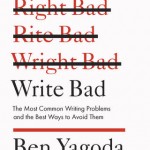White papers: Can a non-scientist write them?
White papers are great marketing tools, but writing them can be intimidating.
White paper question
Here’s what one reader asked:
I’m curious if other readers of your newsletter have similar thoughts / questions about white papers that I do….I’m a little intimidated by the idea of writing a white paper because in a past job (medical device sales rep), white papers were written by scientists doing experiments in the lab. They had a budget, several people working on the research, and they wrote very detailed scientific results to their experiments with many, many footnotes. Often the language of the paper was very difficult to understand.
How can I as a business person write a white paper? (Isn’t that only for scientists?) What would my “business person” white paper look like? Wouldn’t it have to be super scientific?
My answer
You don’t need to be a scientist or hold an advanced degree to write a white paper.
Here’s what I told my reader:
“White paper” has a broad range of meanings. But I think the key is that it poses a problem faced by readers and offers some sort of solution. You’re certainly capable of doing that. If the term “white paper” intimidates you, think of it as a “special report” or “mini e-book.”
My reader’s reply:
Thanks for your answer! The mini e-book resonates with me. Funny how terminology can affect you!
Still have questions about white papers?
Read “White paper marketing: Walk a fine line” to learn about what makes for a good white paper for an investment, wealth management, or financial planning firm.
If you want to write a white paper, but fear that you lack the necessary budget, read “How to get a white paper written on a budget .”
If you’re on the fence about writing a white paper, read “4 reasons you shouldn’t write a white paper.” This article may help you by talking you out of writing a white paper—or pushing you to satisfy a higher standard with your white paper.





The idea of writing a white paper can be intimidating because it raises the nagging fear we all harbor in some form of being discovered as a fraud. My inner dialog– “I don’t really know that much/am not really qualified, etc…”–will be made explicit if I try to write something and appear the “expert” that I’m really not.
The fact is 1) you know so much more than you think, else you wouldn’t have gotten this far, your inner voice notwithstanding, and 2) you only have to know more than your audience to be an expert on anything. As Susan points out, the main point of the paper is to offer a solution to a problem clients or prospects have. If you have the solution, you are the expert.
Ted, thanks for commenting!